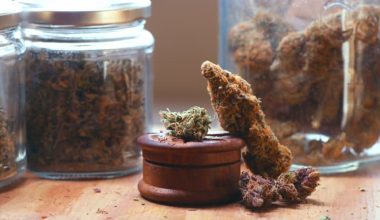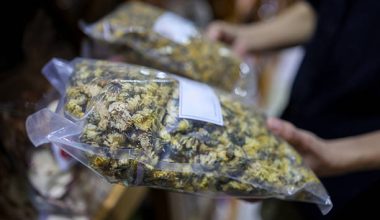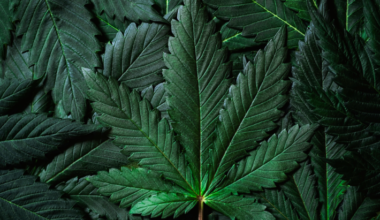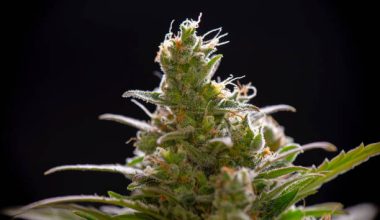In recent years, the wellness industry has seen a surge in the popularity of cannabidiol (CBD), a non-psychoactive compound derived from the cannabis plant. CBD has been lauded for its potential therapeutic benefits, including reducing anxiety, alleviating pain, and improving sleep. As the market for CBD products continues to expand, a new trend has emerged: CBD tobacco. This innovative product combines traditional tobacco with CBD, offering smokers a unique experience that blends the familiar ritual of smoking with the potential health benefits of CBD. In this article, we will explore the rise of CBD tobacco, its potential benefits and risks, and what the future may hold for this burgeoning industry.
What is CBD Tobacco?
CBD tobacco is a product that combines traditional tobacco leaves with CBD extract. Unlike traditional cigarettes, which contain nicotine and are known for their addictive properties and harmful health effects, CBD tobacco is marketed as a healthier alternative. The CBD in these products is derived from hemp, a variety of the cannabis plant that contains less than 0.3% THC (the psychoactive compound responsible for the “high” associated with marijuana). This means that CBD tobacco does not produce the intoxicating effects typically associated with cannabis use.
CBD tobacco is available in various forms, including pre-rolled cigarettes, loose-leaf tobacco for rolling, and even cigars. Some products are designed to be smoked like traditional cigarettes, while others are intended for use in vaporizers or as part of a smoking blend. The goal of CBD tobacco is to provide smokers with a way to enjoy the ritual of smoking while potentially reaping the benefits of CBD.
The Appeal of CBD Tobacco
1. A Healthier Alternative to Traditional Smoking
One of the primary reasons for the growing popularity of CBD tobacco is the perception that it is a healthier alternative to traditional smoking. While smoking any substance carries inherent risks, CBD tobacco is often marketed as a way to reduce the harmful effects associated with nicotine and other toxic chemicals found in conventional cigarettes. CBD itself has been studied for its potential anti-inflammatory and antioxidant properties, which may help mitigate some of the damage caused by smoking.
2. The Ritual of Smoking
For many people, smoking is more than just a habit; it’s a ritual. The act of lighting up, taking a deep breath, and exhaling can be a calming and meditative experience. CBD tobacco allows smokers to maintain this ritual without the addictive properties of nicotine. Additionally, the calming effects of CBD may enhance the overall experience, making it more relaxing and enjoyable.
3. Potential Therapeutic Benefits
CBD has been widely studied for its potential therapeutic benefits, and many users report positive effects such as reduced anxiety, improved mood, and better sleep. By combining CBD with tobacco, users may experience these benefits while still enjoying the act of smoking. For some, this combination offers a way to manage stress or anxiety without turning to pharmaceuticals or other more harmful substances.
4. Legal and Accessible
Unlike marijuana, which remains illegal in many parts of the world, CBD derived from hemp is legal in most countries, including the United States (as long as it contains less than 0.3% THC). This legal status has made CBD tobacco more accessible to a wider audience, contributing to its growing popularity.
Potential Risks and Concerns
While CBD tobacco offers several potential benefits, it is not without its risks and concerns. It’s important for consumers to be aware of these before incorporating CBD tobacco into their routine.
1. Health Risks of Smoking
Despite the potential benefits of CBD, smoking any substance carries health risks. Inhaling smoke into the lungs can lead to respiratory issues, including chronic bronchitis and lung damage. While CBD tobacco may be less harmful than traditional cigarettes, it is not risk-free. Long-term studies on the effects of smoking CBD tobacco are still needed to fully understand its impact on health.
2. Lack of Regulation
The CBD industry is still relatively new, and as a result, it is not as tightly regulated as other industries. This lack of regulation means that the quality and potency of CBD tobacco products can vary widely. Some products may contain higher levels of THC than advertised, while others may be contaminated with harmful substances. Consumers should be cautious and only purchase CBD tobacco from reputable sources.
3. Potential for Addiction
While CBD itself is not considered addictive, the act of smoking can be habit-forming. Even without nicotine, the ritual of smoking can be difficult to break, and some users may find themselves dependent on the act itself rather than the substance. Additionally, some CBD tobacco products may contain trace amounts of nicotine, which could contribute to addiction.
4. Limited Research
Although CBD has been studied for its potential health benefits, research on CBD tobacco specifically is still in its infancy. Most of the available studies focus on CBD in isolation, and more research is needed to understand how it interacts with tobacco and what the long-term effects of smoking CBD tobacco may be.
The Future of CBD Tobacco
As the CBD industry continues to grow, it’s likely that CBD tobacco will become more mainstream. With increasing interest in alternative smoking products and the potential health benefits of CBD, this trend shows no signs of slowing down. However, the future of CBD tobacco will depend on several factors, including regulatory changes, consumer demand, and further research into its safety and efficacy.
1. Regulatory Changes
As the popularity of CBD tobacco grows, it’s possible that governments will introduce new regulations to ensure the safety and quality of these products. This could include stricter labeling requirements, limits on THC content, and more rigorous testing for contaminants. While these changes may increase the cost of production, they could also help build consumer trust and ensure that CBD tobacco is a safe and reliable product.
2. Consumer Demand
Consumer demand will play a significant role in shaping the future of CBD tobacco. As more people become aware of the potential benefits of CBD and seek out healthier alternatives to traditional smoking, the market for CBD tobacco is likely to expand. However, this growth will depend on the ability of manufacturers to produce high-quality products that meet consumer expectations.
3. Further Research
More research is needed to fully understand the effects of CBD tobacco on health. Long-term studies will be essential in determining whether CBD tobacco is a viable alternative to traditional smoking and what risks it may pose. As the scientific community continues to explore the potential benefits and risks of CBD, we can expect to see more data-driven insights that will help guide both consumers and policymakers.
Conclusion
CBD tobacco represents an intriguing intersection of tradition and innovation, offering smokers a new way to enjoy the ritual of smoking while potentially reaping the benefits of CBD. While it is not without its risks, the growing popularity of CBD tobacco suggests that it may have a place in the future of smoking alternatives. As with any new product, consumers should approach CBD tobacco with caution, do their research, and consult with healthcare professionals if they have any concerns. With further research and regulation, CBD tobacco could become a safer and more widely accepted option for those looking to reduce their reliance on traditional cigarettes.
Medical Disclaimer:
The information provided in these blog posts is intended for general informational and educational purposes only. It is not a substitute for professional medical advice, diagnosis, or treatment. Always seek the advice of your physician or other qualified healthcare provider with any questions you may have regarding a medical condition. The use of any information provided in these blog posts is solely at your own risk. The authors and the website do not recommend or endorse any specific products, treatments, or procedures mentioned. Reliance on any information in these blog posts is solely at your own discretion.






